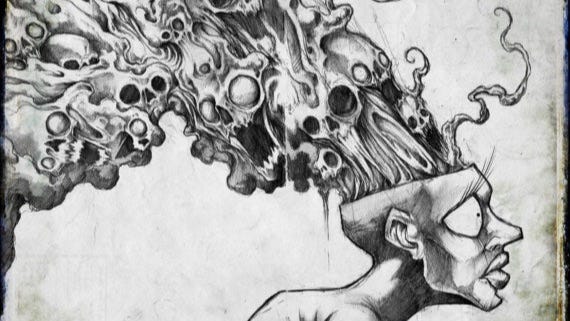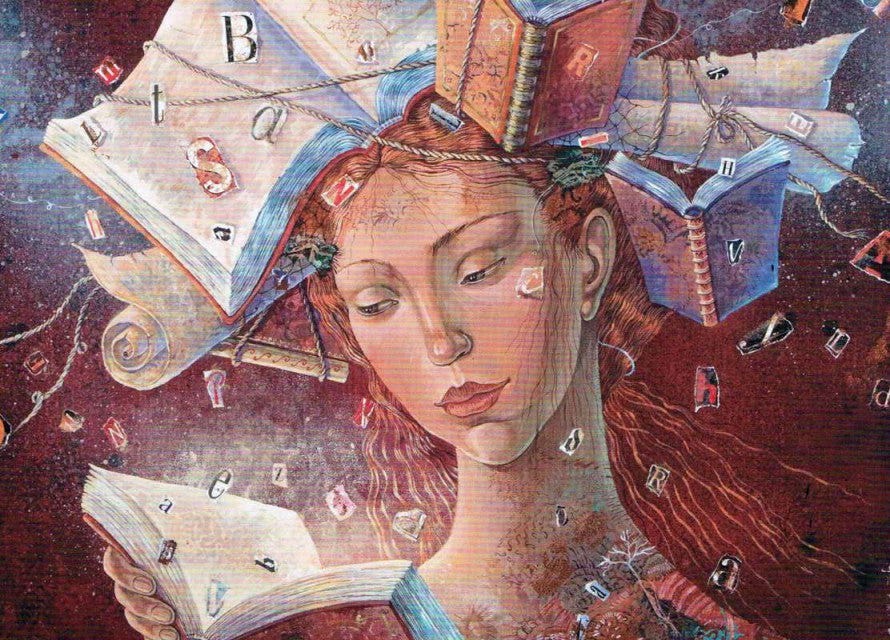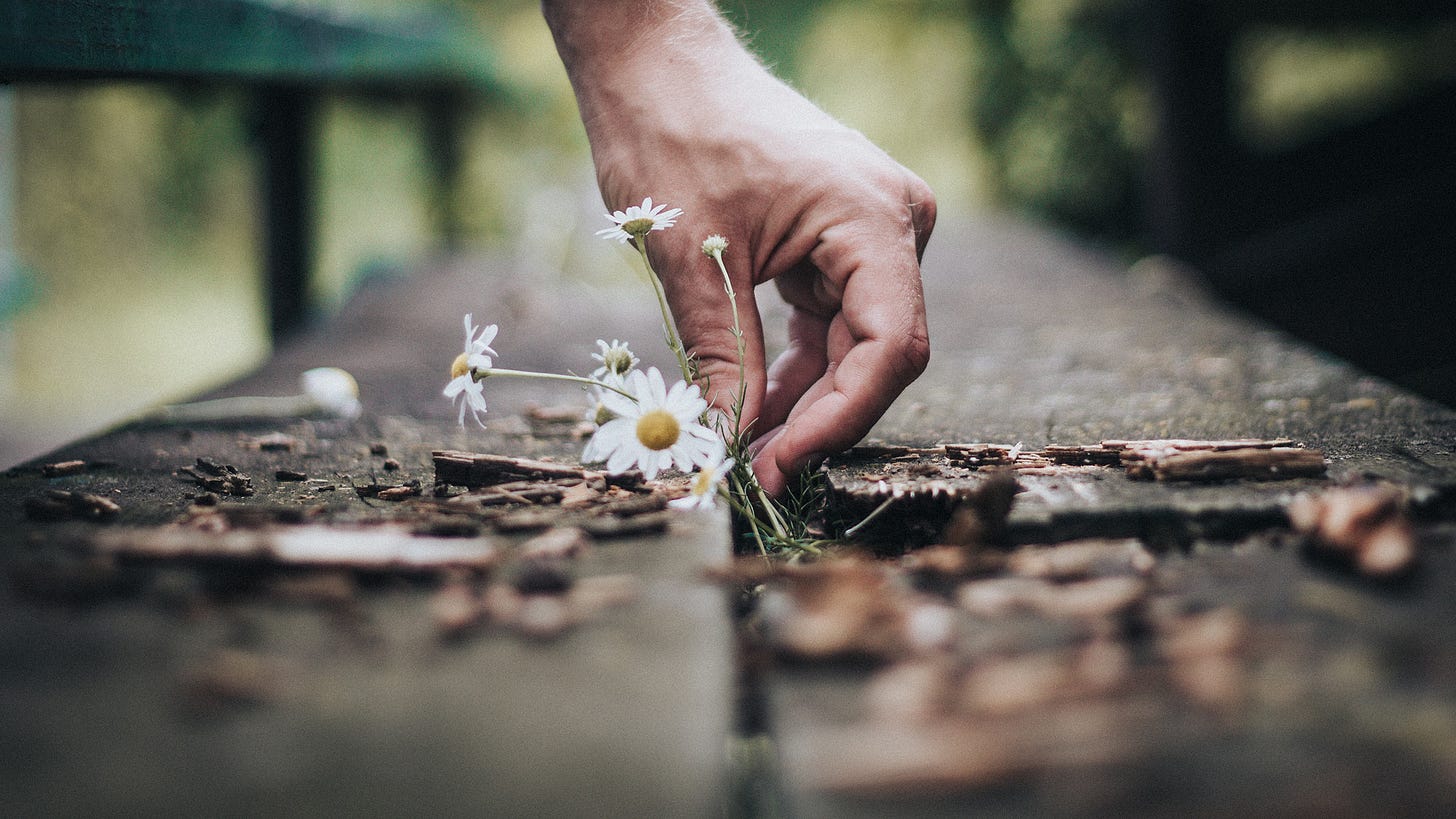IF THIS ISN'T NICE I DON'T KNOW WHAT IS
Happiness is funny. I desperately crave it when I don’t have it. And when it arrives I rarely know what to do with it. Anyone relate?
It might seem an odd moment to muse on happiness. The gray winter months are upon us, the pandemic continues to rage with all its attendant grief, the democratic experiment feels more fragile than ever. But happiness is a fickle visitor and it feels obscene to not at least honor it when it drops by for a visit.
It was a few weeks ago. My girlfriend was sleeping upstairs, my dog Nelson had just been fed, I was making my morning yerba maté concoction when I felt a subtle... something wash over me. I reported on the feeling to my girlfriend a bit later with no small amount of astonishment: "I think I'm happy."
I feel the need to clarify that this strain of happiness was not the common variety, in that it was connected to nothing external. By that I mean no one had called to offer me a compliment, a job, or let me know I'd won any kind of award. It was so much simpler than that. The hungry ghost of yearning and grasping was mercifully silent. I felt present, grateful, and anxiety-free.
So I’m writing this from a relatively ‘happy’ place. It makes me slightly nervous to even type that, as if I’m daring the gods to jostle me out of this state and thrust me into darker days. Happiness seems so deeply fragile. I tiptoe when happiness is present, like trying not to wake a sleeping baby.
It’s possible I’m just hedging my bets, not unlike how anxiety-prone people imagine every possible disaster scenario so that in the event one finally arrives they’ve at least prepped ourselves. Anxiety and depression – those twin opponents of happiness – might also be hard-wired inside us, genetic reminders of a time in human history fraught with far greater threats than the ones we face today.
(I love this tweet from @local_celeb: “people think they experience anxiety because they are smart and self aware. Wrong. it’s because your brain is a million years old and it thinks someone frowning at you means you’re going to die. Good luck”)
Still, this lack of faith in happiness is a real thing. Why is happiness such a tough thing to accept and metabolize? And why the almost gravitational pull towards negativity? Why do we believe negative states to be somehow more authentic and durable than positive ones?
Culturally we seem to value and honor darkness more than light. Tragic books and movies are conferred a kind of critical blessing and awards recognition that comedies and sunnier tales are often not. Darkness, according to the cultural gatekeepers, equals sophistication while uplift signifies unseriousness.
This has always bummed me out. Happiness, joy, and connection are just as much a part of the human experience as struggle, pain, and disharmony and just as deserving of narrative exploration. In my own life, I want to grant positivity as much room to thrive as any other emotion. And yet happiness continues to trip me up.
Studies have shown that negative thoughts are much stickier in our brains than positive ones. Four times as sticky, to be exact. Which means we have to spend four times the effort to metabolize a positive thought than a negative one. Self-doubting, self-critical, anxious thoughts velcro themselves to our brain with almost no effort on our part. To get a positive thought to stick around requires a kind of work that negativity simply doesn’t.
This is why I dismiss the idea that cynical people are the clear-eyed realists among us. What if they’re just lazy? Darkness and dysfunction present themselves so loudly and make such a convincing case for their supremacy that to buy into a hopeless, cynical world-view is akin to buying the very first thing you see without shopping around. It’s not ‘truth.’ It’s just one option among many, albeit one with a terrific sales and marketing team behind it.

I’ve written a lot in this space about sadness, loneliness, and grief, the tougher, ‘darker’ emotions that I’m convinced we need to honor and allow space for. I continue to believe that ‘wholeness’ is paramount, that we mustn’t deny or cast off parts of ourselves that we deem unacceptable. But this also means accepting the beautiful, lovable, incorruptible aspects of our nature. Which is no small task.
It’s much easier for many of us to accept the notion that we are rotten, flawed, and unlovable. My beloved friend and teacher Richard Rohr has spoken of this. I can’t source the exact quote but it goes something like this: “We think that the voice of shame and guilt in our heads is the voice of God while the gentle voice of forgiveness and love is our imagination. When in fact, it’s exactly the reverse.”
****
I’ve come to see happiness not as a goal or destination but rather the occasional byproduct of an engaged and meaningful life. Happiness has never been a state I can trap or hold onto for very long. It refuses to respond to my negotiations and manipulations. It tends to drop by for a visit when I’m open-hearted, connected, and least expecting it.
Making things – songs, movies, plays, Museletters – is how I find meaning and occasionally trip into happiness. I believe in art, in the divine power of connection through creativity. When I'm making and sharing things is when I feel the most grounded, present, and at home in my body and the world.
In her roundup of her favorite music of 2020 in The New Yorker, Amanda Petrusich wrote, “I’ve always believed that some amount of optimism, conscious or unconscious, is inherent to the art-making impulse—that to dedicate oneself to something as difficult and thankless as creative work, one has to believe that the world is still good enough and open enough to be transformed, even briefly, by beauty.”

For now I’m finding the best practice to be offering a little pinch to myself when I note myself being stress-free, present, calm, and grateful. I lean into it and do my best to mark it (This is essentially the practice behind the title of the first film I wrote and directed “happythankyoumoreplease.”)
I’ve often thought if we could really get what was going on here, the absolute improbability of any of this, the holy opportunity inherent in having a body and a consciousness and a few years on the earth to love and connect and create, we’d be slack-jawed in amazement and perpetually on our knees in gratitude.
I mean think about it: The sun rises and sets every single day. If we weren’t so inured to this daily miracle and informed about the science behind it we’d be utterly gobsmacked. An enormous ball of fire lifts into the sky each morning, warming us, illuminating us, growing our food. After about twelve hours it dips again and a smaller but no less magical orb appears along with traces and flickers of other dying suns. This happens every single day. We’re so used to these dependable miracles they cease to seem miraculous.
2020 was a deeply fraught, complicated, and difficult year. For many it was filled with grief and isolation. For all its rigors, I learned so much about myself, my needs, my blocks, my fears, my loves.
My focus for 2021 is keeping my heart open to the miraculous and my feet pointed toward the possible. And to not sneeze in the face of happiness or horde it or fear its exit. But simply to let it be. And to remember Kurt Vonnegut’s wise advice: “I urge you to please notice when you are happy, and exclaim or murmur or think at some point, ‘If this isn’t nice, I don’t know what is.’”

(Photo by Stephanie Schuster for County Line Florals)
I loved this short film, How To Be At Home.
This Garth Greenwell essay is a real stunner: "Making Meaning: Against 'Relevance' in Art,"
Wanting some exquisite flowers for Valentine’s Day? Abigail Spencer started County Line Florals last year and they’re just the most beautiful, artful, creative flowers. Check em out.
I posted two new original songs on my YouTube page: My Love and Learning. (Some fun news: I have a 5 song solo EP coming out in a few weeks. Keep your eyes and ears peeled for it!)
Is Healing Even Possible: Reverend William J. Barber II explains why healing the soul of the nation will take more than returning to “normal.”
No game days. No bars. The pandemic is forcing some men to realize they need deeper friendships.
Donald Trump's Presidency Was Supposed to Be Great for Art. It Wasn't
This tore me up: The Senseless Killing of Brandon Bernard
Couldn't have enjoyed reading this more: 64 Reasons to Celebrate Paul McCartney. Also really appreciated this chat McCartney had with Taylor Swift in Rolling Stone.
The Keep Going Song by The Bengsons is such a heart-opening gem.
Like a lot of us I was bowled over by Amanda Gorman's poem at the Inauguration. Here's "Earthrise," another stunning poem of hers.
I didn’t know Catie Lazarus well but we had some nourishing and delightful conversations both on the record and off. This was a real loss. Catie Lazarus, Comedian With A Lot of Questions, Dies at 44.
Delightful: Scenes From A Marriage, Patinkin-style.
Here's the first somewhat optimistic thing I've read on the climate crisis (written by an environmental writer): Inevitable Planetary Doom Has Been Exaggerated.
So proud of my friend Ben Lee and his righteous battle against QAnon.
A hilarious short set from one of my favorite comics Nate Bargatze.
Isabella Huffington has a wonderful new book out as an Audible Original called “Map to the Unknown: A Journey Inward.”
Is It Really Too Late To Learn New Skills? You missed your chance to be a prodigy. but there's still growth left for grownups.
THE CORONAVIRUS PRAYER
by James Parker
Dear Lord,
In this our hour of doorknobs and droplets,
when masks have canceled our personalities;
in this our hour of prickling perimeters, sinister surfaces,
defeated bodies, and victorious abstractions,
when some of us are stepping into rooms humid with contagion,
and some of us are standing in the pasta aisle;
in this our hour of vacant parks and boarded-up hoops,
when we miss the sky-high roar of the city
and hear instead the tarp that flaps on the unfinished roof,
the squirrel giving his hingelike cry, and the siren constantly passing,
to You we send up our prayer, as follows:
Let not heebie-jeebies become our religion,
our new ideology, with its own jargon.
Fortify us, Lord. Show us how.
What would your saints be doing now?
Saint Francis, he was a fan of the human.
He’d be rolling naked on Boston Common.
He’d be sharing a bottle. No mask, no gloves,
shielded only by burning love.
But I don’t think we’re in the mood
for feats of antic beatitude.
In New York City, and in Madrid,
the saints maintain the rumbling grid.
Bless the mailman, and equally bless
the bus driver, vector of steadfastness.
Protect the bravest, the best we’ve got.
Protect the rest of us, why not.
And if the virus that took John Prine
comes, as it may, for me and mine,
although we’ve mostly stayed indoors,
well—then, as ever, we’re all Yours.
Until further notice,
AMEN
****
As always, if you're enjoying these please spread the word (people can sign up here) And if you're new to these check out past Museletters. JR





